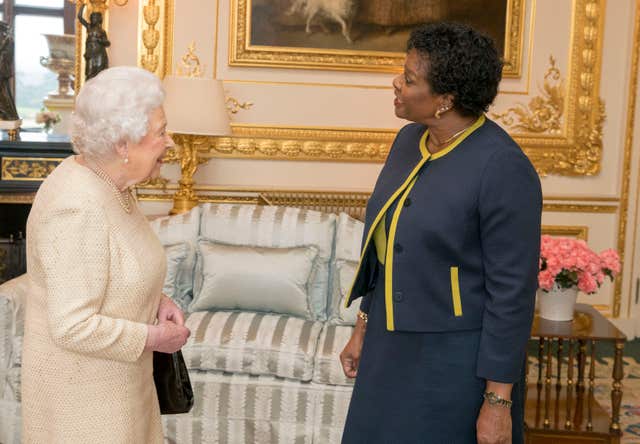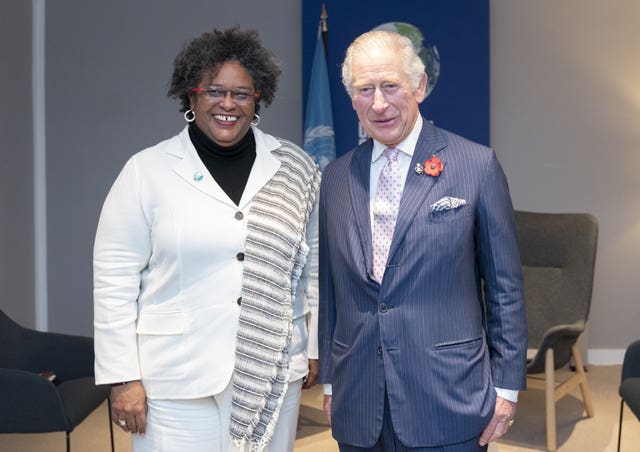The Prince of Wales will highlight the shared goals and enduring bonds between Barbados and the UK during a ceremony marking the Caribbean country’s transition to a republic.
Charles will also tell the nation it is “important” for him to attend the event, being staged in the capital Bridgetown, to “reaffirm those things which do not change” as the major constitutional shift takes place.
Barbados’s decision to remove the Queen as head of state will be watched closely by other members of the Commonwealth especially in the Caribbean region.
Prime Minister @BorisJohnson’s statement on Barbados becoming a republic.
???? pic.twitter.com/8c1Famj9FK
— UK Prime Minister (@10DowningStreet) November 29, 2021
Prime Minister Boris Johnson said the UK and Barbados will remain “steadfast friends and allies” with “a partnership built to last”.
“As Barbados turns a new page in its history and becomes a republic, I am proud to celebrate the enduring relationship between our two countries,” he said in a statement.
“We will remain steadfast friends and allies, building on the longstanding kinship and connections between our people and the unique bond of the Commonwealth.
“Ours is a partnership built to last, as we tackle shared global challenges like the climate crisis and global recovery from the pandemic together.”
During the ceremony in National Heroes Square, Charles is expected to say: “As your constitutional status changes, it was important to me that I should join you to reaffirm those things which do not change.”

Charles is also expected to celebrate the cultural, social and economic bonds between the UK and Barbados, “the myriad connections between the people of our countries – through which flow admiration and affection, co-operation and opportunity – strengthening and enriching us all”.
Barbados is following other Caribbean nations who have also dispensed with the Queen as their head of state, with Guyana becoming a republic in 1970, Trinidad and Tobago following in 1976 and Dominica two years later.

Charles is also expected to talk about reaffirming the friendship he has had with the island since he first visited 50 years ago and praise the invaluable contribution of the Barbadian diaspora in the UK.
During the ceremony, service personnel will march past the prince and give their final salute to the monarchy before the Queen’s standard is lowered and the presidential flag raised.
Demonstrations are expected during the day with some Bajans demanding an apology and reparations from the monarchy and UK Government for slavery.
Charles will also receive the Freedom of Barbados, awarded for extraordinary service to the country, the Caribbean diaspora or to humanity at large.
The Queen has been Barbados’s head of state since it became independent in 1966 but the issue of becoming a republic has been discussed at national level during the following decades.
Barbados is one of the Queen’s 16 realms – countries where she is head of state – and in the Caribbean region other countries include Antigua and Barbuda, Bahamas, Belize, Grenada, Jamaica, Saint Kitts and Nevis, Saint Lucia and St Vincent.
Charles arrived in Barbados on the ministerial jet Voyager late on Sunday night local time, and was greeted by a large diplomatic party led by Britain’s high commissioner to Barbados Scott Furssedonn-Wood.
Barbadian prime minister Mia Motley and military chiefs lined a red carpet and were introduced to the prince.
Also part of the welcoming group was a Guard of Honour and military band, and a deafening 21-gun salute rang out across the Grantley Adams International Airport to mark the prince’s arrival.






